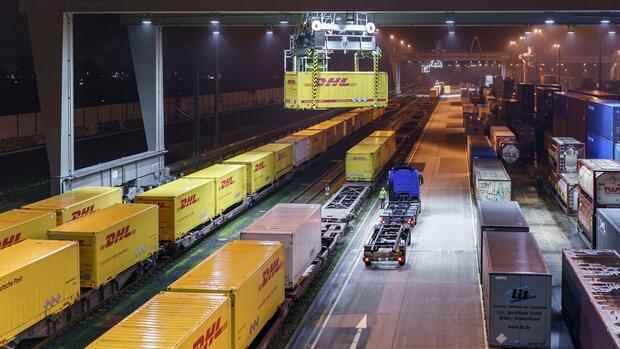regensburg What has been tried and tested in the USA often comes to Germany. For Jürgen Kühling, head of the Monopolies Commission, this is a threatening prospect. Corporate profits there have risen sharply over the past two decades, and companies have also been able to enforce higher price premiums. “That does not suggest – at least in individual sectors – that competition is functioning,” he says in an interview with the Handelsblatt.
The finding also highlights quasi-monopolies such as Amazon, Google, Facebook, Apple and Microsoft. To regulate such economic power, Kühling relies on the new federal government – and generally encourages it to adopt a more courageous competition policy. “The message of the new coalition agreement to improve the framework conditions for fair competition is gratifying,” he says and adds: “But it must not remain an announcement. It is important to quickly bring this promise to life. “
The Regensburg professor for public law, real estate law, infrastructure law and information law is disappointed by the passages in the coalition agreement with Deutsche Bahn AG. The newly planned internal separation of the infrastructure from the transport companies could help to prevent cross-subsidization – but the Monopolies Commission had proposed a separation in terms of ownership. Now it is necessary to strengthen the organizational independence and the economic transparency of the new infrastructure GmbH, thinks the head of the Monopolies Commission.
Overall, Germany is well positioned in traditional competition law, stresses Kühling. However, the regulation of Deutsche Post AG is in urgent need of reform. After all, an amendment to the postal law is announced in the coalition agreement, which was left behind by its predecessors – “this could finally create more competition”.
Top jobs of the day
Find the best jobs now and
be notified by email.
The mail market is still 83 percent dominated by the Post Group. Rivals without their own delivery network should be able to give the yellow company smaller consignments of goods and magazines to distribute, advises the Monopolies Commission.
Kühling has high expectations of the new federal government
Apparently, the commission hopes for a course for competition between the new governing parties, the FDP and the Greens, in the traffic light coalition. The SPD may be smoother at the traffic lights than it was before in the grand coalition with the Union. It is time, said Kühling, for the federal government to sell its shares in Post and Deutsche Telekom, which it holds through KfW: “The conflict of interests of the state as a shareholder, regulator and legislator is not beneficial.”
The head of the Monopolies Commission warns of the economic power of American corporations like Amazon and Google.
(Photo: dpa)
The competitive situation on the mail market, where – unlike in mobile communications – there are no strong opponents to be seen as particularly negative. It should also be corrected as quickly as possible that auctions no longer have priority when awarding frequencies: “The auction is simply the most competitive and economically best procedure.”
This recommendation is also in the now published 12th Telecommunications Sector Report of the Monopolies Commission. Apparently the telecom competitors Vodafone and Telefónica had successfully pushed for an end to the old auction process in the past, as can be heard in government circles.
If competition law does not succeed in keeping markets open, the splitting up of market-dominant gatekeepers in the field of digital markets is conceivable as a last resort, says Kühling: “But that can only happen at the European level.” has formulated a corresponding goal in the coalition agreement.
The “Digital Markets Act” planned in Europe for the first half of 2022 is going a different way, says Kühling. The requirement of strict behavioral obligations should limit the “legacy of the markets”.
Amazon puts German suppliers in trouble
When it comes to Google and Co., a majority would quickly be found that would say: “They have to be regulated,” continues the head of the Monopolies Commission. But we also experienced in Germany with the “Big Five” of the digital world “large ecosystems that represent a problem not only economically but also politically”.
There are always investigations and penalties for competition violations. In Italy, Amazon recently had to pay a cartel fine of 1.1 billion euros because the US group transferred its power in online trading (market share: around 50 percent) to the parcel delivery business with quite brutal means.
In this country, however, Amazon’s market share among delivery companies is only five to 15 percent, according to a Post sector report by the Monopolies Commission. That is a long way from the champion Deutsche Post DHL, who has 40 percent.
Jeff Bezos’ group is currently perceived as an “innovation driver” and is bringing “new momentum” to the market, according to the report. Kühling to Handelsblatt: “We have to be careful, however, that it stays that way – and that Amazon does not leverage its power as a large platform operator on the parcel market.”
The great dangers of concentration, so the conclusion, now come from outside – from the American west coast, from the headquarters of modern data capitalism.
More: The US and the EU are preparing for the digital future – at least on paper
